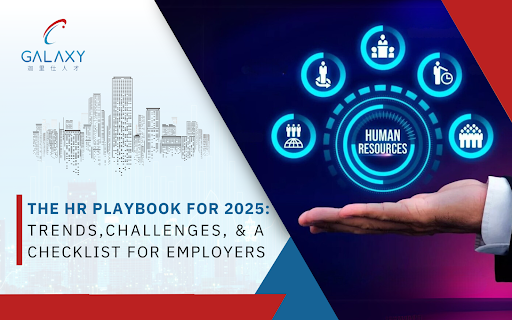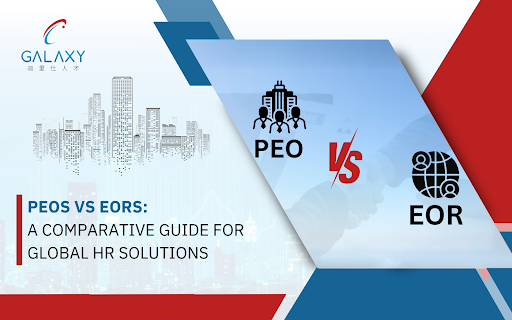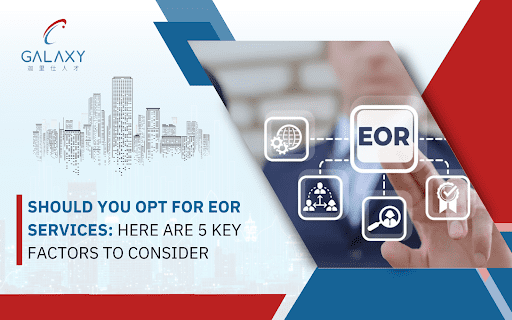Your Go-To Guide for Indian Employment Laws and Obligations in 2025

Planning to start a business in India? Understanding and complying with complex employment and labour regulations can be challenging when it comes to hiring Indian talent.
Entrepreneurs must keep themselves informed of the complex framework of Indian employment and labour laws, in order to present a fair and safe work environment – protecting themselves from unnecessary penalties and fines under India’s Applicable Employment Act.
This blog will provide an idea of how the legal framework of India works, the rights of employees, employers’ obligations and the basic provisions and practices employers in India must follow.
Table Of Content
- Legal Framework of Employment and Labour Laws in India
- An overview of current Employment and Labour Laws in India
- - Social Security
- - Wages and Payment
- - Employment Rules
- - Women and Child Labour
- - Workplace Safety and Health
- - Industrial Relations
- Labour Reforms and Codes
- Compliance Challenges for International Businesses
- How Can We Help?
Legal Framework of Employment and Labour Laws in India
The Indian legal framework has expanded over the years with the enforcement of various Acts addressing social security, equal opportunity and workplace safety; ensuring at the same time a collaborative approach to labour and employment regulation addressing unique needs of states while maintaining national consistency.
Labour and employment laws in India are a central-state subject where both central and state governments have the power to legislate and enforce. There are laws like the Industrial Disputes Act, 1947, Factories Act, 1948 and Minimum Wages Act, 1948 formed by the Central Government. States have the power to modify them and often draft rules to implement them within their jurisdictions.
One can simply log on to https://labour.gov.in/, the official website of the Ministry of Labour and Employment to get an insight into any of the central or state laws.
Most recently in 2020, the Indian government consolidated 29 labour laws into 4 labour codes. This was meant to simplify and reform the country’s labour laws and reduce compliance burden – by the merging of multiple registrations and licenses. However, the same is not yet enforced and awaits implementation.
For now, the existing laws remain in force.
An Overview of Current Employment and Labour Laws in India
Social Security
The Social Security laws ensure employee welfare during and after employment. Employees have the right of access to retirement benefits, health insurance, injury support, gratuity and maternity leave.
Therefore, employers must ensure the following:
- Access to retirement benefits through the Employees’ Provident Fund (EPF) and pension schemes ensure financial security post-retirement.
- Provide medical and insurance benefits under the Employees’ State Insurance Act, 1948.
- Payment of gratuity upon retirement or resignation of employees with 5+ yrs of service under the Payment of Gratuity Act, 1972.
- Provide maternity leave and benefits as per the Maternity Benefit Act, 1961.
Wages and Payment
Under the laws regulating payment of wages, employees are entitled to receive at least the minimum wage prescribed by state/central authorities under the Minimum Wages Act, 1948 – timely payment of wages without unauthorised deductions under the Payment of Wages Act, 1936 and equal pay for equal work under the Equal Remuneration Act, 1976.
Therefore employers must ensure fair and timely payment of wages, issue detailed payslips and maintain proper wage records.
Employment Rules
Employees have the right to an employment contract with clear terms, fair working hours and overtime pay.
Employers obligations:
- Contracts: Clearly define terms of employment, including wages, roles and termination conditions.
- Work Hours: Regulate working hours (max 48 hours per week) or 9 hours per day and provide overtime pay as per the Shops and Establishments Act (state-specific).
- Leaves: Ensure a minimum of 12 days paid leave annually for full-time employees. For employees who work for over 240 days, a weekly day off is expected, with provision of sick leave and casual leaves that align with state specific regulations.
- Public Holidays: Provide work holidays on Public and State holidays.
- Termination: Classify employees as workmen and non-workmen, with differing rules for termination. For “workmen,” employers must follow strict processes, including notice periods and severance pay. Termination of non-workmen should be governed by contract terms adhering to general principles of fairness and natural justice.
- Apprenticeships: Employers hiring apprentices must comply with training obligations under the Apprentices Act, 1961.
- Notification of Vacancies: Employers must notify vacancies to government employment exchanges under the Employment Exchanges Act, 1959.
Women and Child Labour
Female employees have the right to maternity leave and protection from workplace harassment under the Maternity Benefit Act, 1961, and Sexual Harassment of Women at Workplace (Prevention, Prohibition, and Redressal) Act, 2013.
Employers in this respect are required to implement anti-harassment policies and set up an Internal Complaints Committee for handling grievances.
Children under 14 years of age are not employable for hazardous jobs as enforced under the Child and Adolescent Labour (Prohibition and Regulation) Act, 1986
Workplace Safety and Health
The Factories Act, 1948 and other relevant laws entitles employees to have the right to work in safe and hazard-free conditions. Therefore, employers must maintain a safe and healthy working environment, conduct regular health checks and ensure workplace hygiene.
Businesses are also required to report accidents and comply with safety norms under the Occupational Safety, Health and Working Conditions Code, 2020.
Industrial Relations
In India, workers have the right to form trade unions, collectively bargain, strike and seek protection against unfair dismissal.
Therefore employers must allow union formations under the Trade Unions Act, 1926, establish mechanisms for resolving disputes including arbitration and adjudication for layoffs, retrenchments or strikes as per the Industrial Disputes Act, 1947 and define clear terms of employment under Industrial Employment (Standing Orders) Act, 1946.
Labour Reforms and Codes
An insight to the four new Labour Codes, expected to be fully implemented in 2025:
- The Code on Wages, 2019: wage payments, minimum wages and bonuses.
- The Code on Social Security, 2020: social security benefits like provident funds, gratuity and insurance.
- The Industrial Relations Code, 2020: dispute resolution, strikes and collective bargaining.
- The Occupational Safety, Health and Working Conditions Code, 2020: workplace safety, health standards and working conditions.
Compliance Challenges for International Businesses
Indian employment regulations often vary between states, requiring local compliance strategies. Businesses must stay updated with frequent amendments and notifications. Understanding cultural expectations around job security, hierarchical structures and work-life balance is key to successful compliance and employee engagement.
How Can We Help?
Galaxy Payroll Group has 20 years of Payroll and EOR service experience and partnering with us will help reduce your burden of trying to understand and comply with India’s complex legal framework. We will hire and manage employees for you to also reduce your administrative load while you focus on more important tasks.
Ready to Expand to APAC with Ease?
Partner with us to navigate APAC’s laws and build a compliant workforce.
FAQ’S
1. What is an Employer of Record (EOR)?
An Employer of Record (EOR) is a third-party service provider that manages employment responsibilities for your company, including payroll, compliance and other HR functions. It ensures that businesses adhere to local labour laws without having to directly employ the workers.
2. What are the key labour regulations employers must be aware of in India?
Employers must comply with regulations related to employment contracts, work hours, overtime, workplace safety, anti-discrimination policies and employee benefits like paid leave and retirement schemes. It is also very important to stay updated with state-specific regulations as well.
3. What types of employment contracts are used in India?
In India, employment contracts can be permanent, fixed-term, or temporary (probationary). These contracts outline job responsibilities, benefits and terms of employment – ensuring clarity for both the employer and employee.
4. How does maternity leave work in India?
Maternity leave in India is 26 weeks for women who have worked for at least 80 days in the previous year, and 12 weeks of leave for adoptive mothers. This is considered paid leave and is a crucial part of employee welfare.
5. What is the Employee Provident Fund (EPF)?
The EPF is a retirement savings scheme where employers contribute a portion of the employee’s salary (usually 12%) to a fund. The employee can access the accumulated amount at retirement or resignation.





